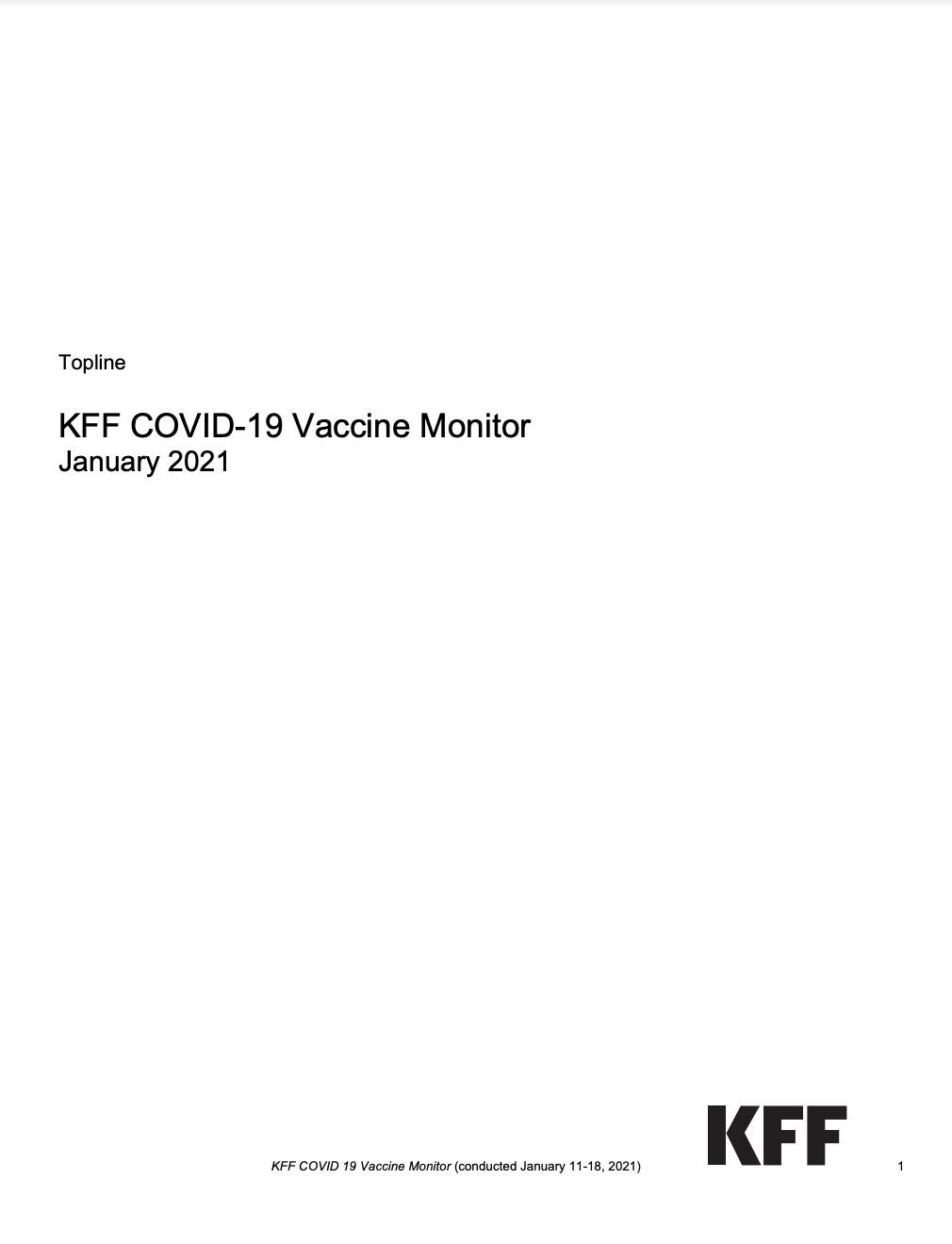KFF COVID-19 Vaccine Monitor: Attitudes Towards COVID-19 Vaccination Among Black Women and Men
Description
The COVID-19 pandemic has had a disproportionate impact on people of colour, and previous KFF analysis of federal, state and local data has found that people of colour, particularly Black people, are experiencing a disproportionate burden of COVID-19 cases and deaths. This burden is reflected in survey data, as large shares of Black adults (72%) say they are worried that they or someone in their family will get sick from the coronavirus. As the vaccination efforts roll out, a recent KFF analysis shows that across states reporting vaccination data by race and ethnicity, patterns emerge with Black and Hispanic people receiving smaller shares of vaccinations compared to their share of COVID-19 cases and share among the total population. These disparities likely reflect a variety of factors, including the availability of information about how and when to get the vaccines as well as the ability to navigate sign-up processes and access vaccine clinics. Individuals’ willingness to get the vaccine and their concerns and questions about the vaccine may also be a factor. As such, understanding attitudes towards COVID-19 vaccination within these communities is one step towards addressing these disparities. Despite Black adults being among the groups most impacted by the pandemic, the KFF COVID-19 Vaccine Monitor finds that many want to wait and see how the vaccine will work for others before getting vaccinated against COVID-19 themselves when it becomes available to them for free, and one in seven say they will definitely not get vaccinated.
This new analysis examines Black adults’ responses by gender and finds that, while Black men and women are similar in many of their views, there is a gender gap in some COVID-19 vaccine attitudes and intentions.
Highlights include:
- Providing accurate information about side effects may be key to communicating with this group. Among those not yet vaccinated, large shares of Black women (87%) and men (61%) say they are worried they might experience serious side effects from a COVID-19 vaccine. Many Black women (69%) and men (65%) who have not yet gotten the vaccine also say they do not have enough information about vaccine side effects.
- About half of Black women (53%) and men (45%) say that they trust the health care system to do what is right for them and their community “only some” or “almost none” of the time. This suggests addressing historic mistreatment and inequities in the vaccine distribution process could help outreach efforts aimed at vaccine hesitancy among both Black women and men.
Additional languages

DETAILS
Publication
Authors
Emergency
Scope
Language
Keywords

